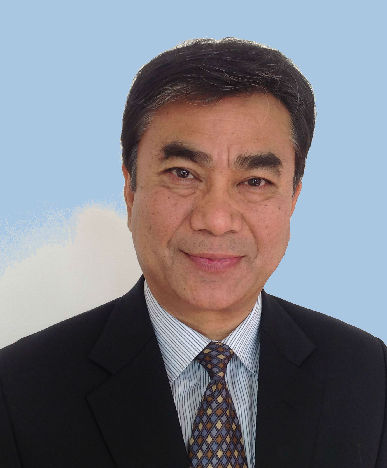Nepalese Ambassador Talks about Corruption in China
By LI JINGRONG
Nepalese Ambassador to China Mahesh Kumar Maskey said that China's anti-corruption drive is of global interest, in an interview conducted by China.org.cn on February 28, 2014.
Nepalese Ambassador to China Mahesh Kumar Maskey.[Photo/China.org.cn]
"How successful China is in dealing with the menace of corruption is of interest to the world at large, and the international media," he said.

He added that the close attention the foreign media are paying to the campaign to fight corruption in China is quite understandable.
"Even though China is the second largest economy and is predicted to become the first in the coming decade, it is still a developing country from the standpoint of per-capita income," he added.
"As is the case with many other countries that have become, or are becoming prosperous, corruption is a major problem, but with added severity because of China's unique situation," the ambassador said.
"Secondly, China has clearly stated that control of corruption is its topmost priority. In particular, the new administration under President Xi Jinping has shown an unflinching commitment to tackle the problem."
"The method had been called the 'Mass Line' campaign and President Xi's instructions were clear - to spare neither 'tigers' nor 'flies," he observed.
"He has even linked this endeavor with the survival of the Communist Party. If the survival and vitality of the Party depend upon corruption control, one can imagine what sort of effort the new leadership is going to put in this campaign. Such an undertaking may have a few parallels in history and therefore is of great interest to the foreign media".
The third reason for the great media interest was related to the "Chinese Dream" of national rejuvenation and China's peaceful rise within the global community.
As a civilization that has immensely enriched humanity with its advanced culture, philosophy and science at a time when many countries are still stuck in primitive social conditions, the renewed rise of China "heralds a new dawn in human history opening the gate of immense possibilities for peace and harmony to the world," Maskey said.
This potential is seriously threatened by the problem of corruption, requiring stern control measures. The stakes are high, and that naturally provokes great foreign interest," he added.
While there were some similarities among different countries in the fight against corruption, there is also the possibility of different approaches.
"Corruption breeds when accountability of the people's representatives is eroded, when people have less power to control those who deal with the national resources. Some countries may rely more on a bureaucratic/legal approach to deal with such problem, some like China, may rely more on the mass line in which the people may have more direct say. Both are intended to raise accountability."
The ambassador went on to say that achieving public consensus on how to control corruption could be achieved through maximum transparency.
"Responsible print and social media have a great role in ensuring transparency and also accountability," he added.
Services
Economy
- Are You Ready to Perform?
- Beijing’s Green Courtyard
- China’s CSR on the Global Market Fast Track – An Interview with Xu Zongxiang, vice president of China South Locomotive & Rolling Stock Corporation Limited (CSR)
- China’s Changing Development Pattern
- China Accelerates Transformation of Its Economic Development Model
